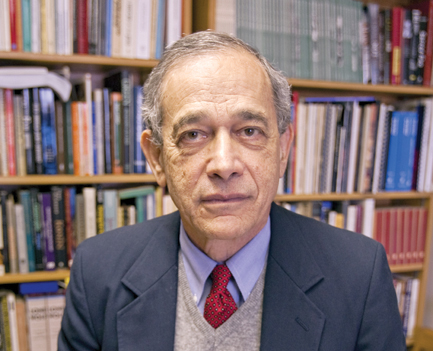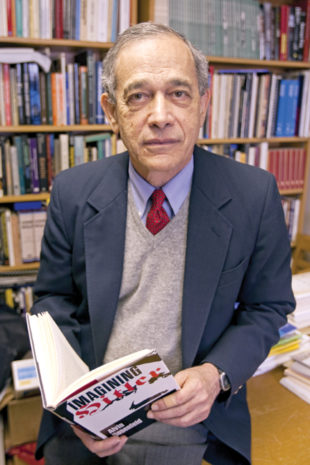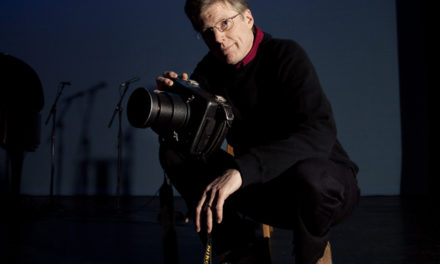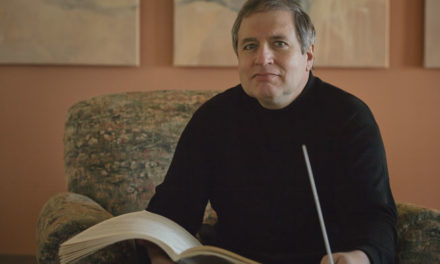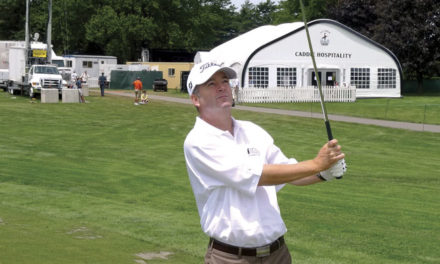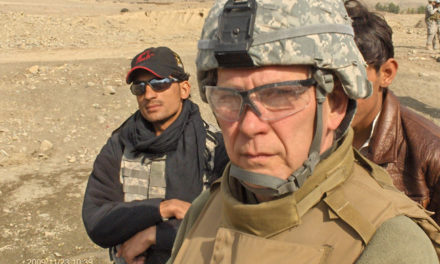BY DEB KENT
It has been called “the longest hatred,” and it has long held the attention of Alvin Rosenfeld, founder and director of the new Institute for the Study of Contemporary Antisemitism at Indiana University. Rosenfeld says his reason for creating the institute, one of only two of its kind at American universities, “is as simple—and complex—as trying to discover what keeps alive this deep hatred and seeing what might be done to ameliorate it.”
A professor of Jewish studies and English, Rosenfeld knows this terrain well. He is the author of Thinking About the Holocaust: After Half a Century and Imagining Hitler (both by IU Press), among other books and scores of articles on the Nazi era. But even if anti-Semitism today looks different from its earlier incarnation, “It’s bad enough,” he says. “In Europe, South America, and some Muslim countries, Jewish schools and houses of worship have been attacked, Jewish cemeteries and Holocaust memorials have been desecrated, Jews have been beaten on the streets and in their shops, and some have even been murdered. America itself is not immune; nor is Canada. There have been a number of ugly incidents in each country. We need to study it to understand what motivates present-day violence against Jews and Jewish institutions.”
The institute has a research-oriented conference planned for 2011 and will bring to Bloomington many of the leading scholars of anti-Semitism from the United States, Europe, and Israel. “We’ll ask the hard questions, the necessary questions, and will aim to come up with answers to help us understand the nature and magnitude of this hatred,” says Rosenfeld, adding that about 20 leading figures in the field have already signed up to participate. “Discussions will be intense, serious, consequential.”
Rosenfeld, who moved to Bloomington in 1968 and with his wife Erna raised two children here, says he hasn’t been on the receiving end of anti-Semitism “other than the occasional hate mail.” He began to learn of the Holocaust, though obliquely, as a child, gazing at family photos and wondering what had become of those striking-looking family members who remained in Russia and whom he would never meet. “Whenever I asked my parents about them, I never got any answers. That silence stayed with me and got me thinking.”
The resurgence in anti-Semitism is troubling to say the least, says Rosenfeld, “and the best way I know to deal with the troubles is to study them, try to understand them, and work hard to educate others about them. Anti-Semitism threatens the Jews initially, but if left unchecked, it soon spreads its poisons through society as a whole. We need to do what we can to see that this doesn’t happen.”


